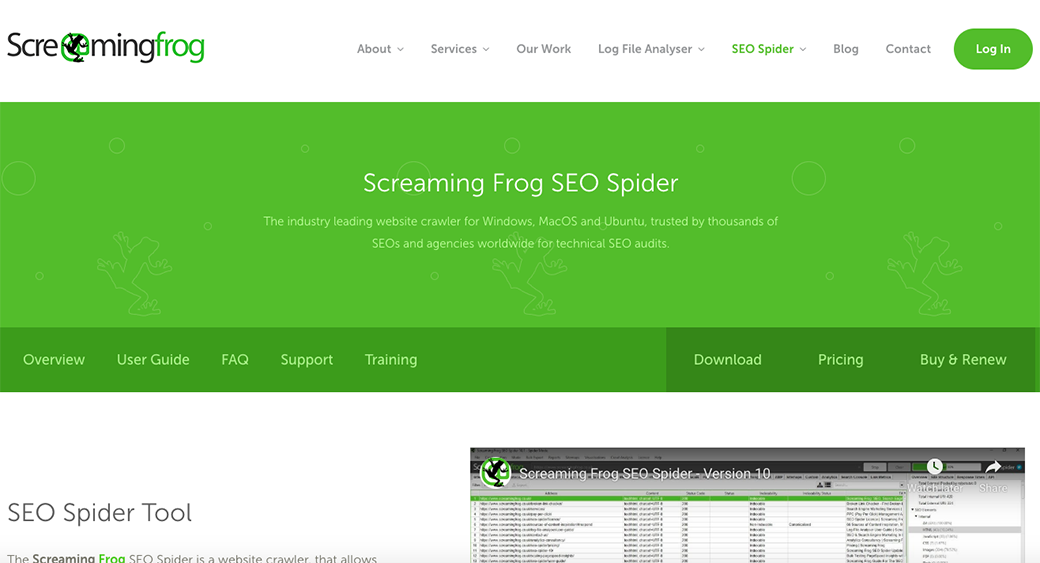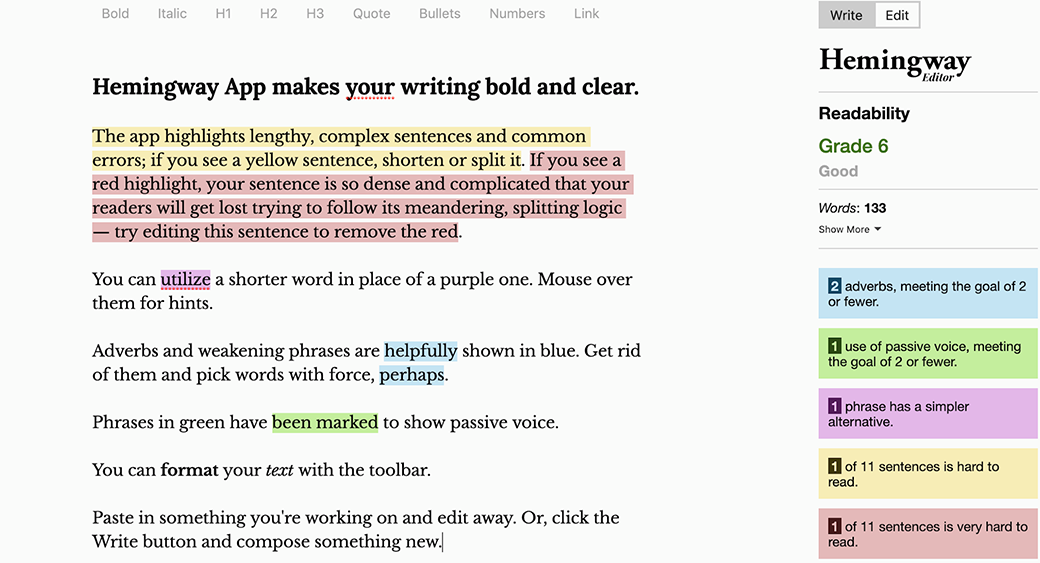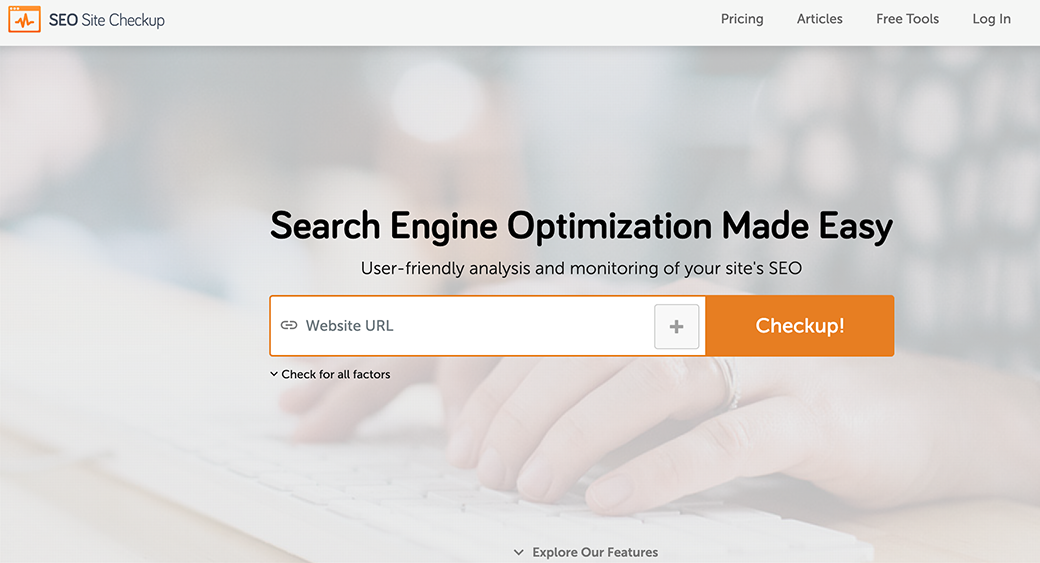Content Audit Tools – 8 Best Web Content Inventory Tools
Proper content organization and proper Search Engine Optimization are critical for websites. In addition to ensuring that a website stays relevant in the eyes of Google, doing so reveals the best-performing content topics. So, you can capitalize on the opportunity to get higher in search engine results. Content audit tools are a good way to speed up implementing this process and focus on what performs best.

In this article, you’re going to learn the following:
- What is a content audit?
- Why is conducting a content audit important?
- Top 8 content audit tools.
What is Content Audit?
A content audit is a process of a systematic review of website content to evaluate its performance in terms of meeting business objectives.
It’s a cornerstone of a working content marketing strategy because it’s hard to make any plans without knowing what’s available (and working). To get a big-picture overview of your website’s content, you need to check every content piece on your website.
For example, let’s suppose you’re running a blog about travel.
If you decide to go with the manual audit, the first thing you need to do is collect and catalog every blog entry that you have. You can do this as simple as copying URLs into a spreadsheet (just make a content inventory). However, this could take a lot of time off your schedule, that’s why we’re going to review content audit tools soon.
Or you can use one of the simplest website content audit tools: Google Analytics. With it, you will see what kind of engagement (views, clicks, etc) each of the blog entries received.
Let’s suppose you see something like this:
- Blog article: 6 Reasons to Visit Berlin in December (Views: 1,100, Reads: 879)
- Blog article: Top 10 Places in Barcelona (Views: 643, Reads: 421)
- Infographic: How Does Visa-Free Travel Work? (Views: 699, Reads: 531)
- Blog article: How to Travel on Budget for Couples (Views: 2,497, Reads: 2,243).
After taking a closer look at these findings, you realize that the last item has received the highest number of views and reads. There could be other metrics, too, I just used the most common ones here. For you as a content producer, this suggests that most readers are interested in getting actionable advice on travel.
This makes sense. Many people want to know how to travel for cheap; in fact, some estimate that more than 30 percent of US travelers read blogs to get some advice. This brings us directly to the next subsection.
Why Is Conducting Content Audit Important?
By conducting such a basic content audit as described above, you already discover something really important: the best-performing content pieces. This means good things for you because:
- You can produce more content on the most popular topics to get more traffic on your blog.
- You can create more content in the most popular format to attract more visitors. For example, if how-to articles prove to be the most popular format on your blog, you can write more guides and similar pieces.
- You can identify the content that holds you back. In many cases, bloggers and other content creators find out that some content formats/topics simply don’t work.
This sounds like something you can benefit from, right? Fortunately, there are many other benefits to conducting a content audit in addition to those listed above.
For example, you can find out that your website is missing some content that your readers might find interesting. On top of that, there’s also a good chance that you’ll discover outdated content. This one requires refreshment to be relevant and get back in search engine results.
Heck, some were able to see the reasons why their websites were sanctioned by search engines (duplicate content pieces, entries with prohibited practices like keyword stuffing, etc.)
Based on the results of this simple analysis, you’ll be able to come up with a better content marketing strategy. Not only your content would be better format-wise, but also more visitor-friendly. And that is something both readers and Google appreciate.
Should you do a content audit manually, though? Well, it’s always an option, but if your website has lots of content, then going with website content audit tools is much faster. Besides, they can also supply you with more detailed information about each content piece, including page views, content reads, keywords, meta titles and descriptions, and more. By utilizing reliable web design company-specific content audit tools, you can streamline the process and save valuable time.
Top Content Audit Tools
Now, let’s see the most popular content audit tools that you can use to understand your website content’s strong points and weaknesses.
Sitechecker
H1 tag Checker by Sitechecker is an online tool to check the presence of the H1 tag, which will also analyze and calculate its length. You can also pass on keyword information to rank the page.

After the scan in the analyzer is complete, you will get complete information about the H1 tag on the specific page of the site that was scanned. In addition, you should keep in mind that you can check only one page and not all pages of the domain at once during the scan.
Screaming Frog

The reason why Screaming Frog is the first item on this list is that it’s one of the best content audit tools. Basically, it’s a desktop app that crawls a website and generates a report where a user can get SEO insights as well as potential problems. Most of the users of the app – bloggers, entrepreneurs, and content marketers – have found it extremely easy to use as well as able to provide comprehensive data.
The list of useful data generated by this content audit tool includes:
- Title tags
- Anchor texts
- URLs
- Meta descriptions
- Meta titles
- Headings and subheadings (H1, H2, H3, and H4)
- Word counts.
Another good news is that the free version of Screaming Frog lets you crawl as many as 500 URLs. This might be enough for many bloggers and small businesses looking for affordable content inventory tools. Combined with the data from Google Analytics (bounce rate, conversion data, visits, etc.), you can get a very decent overview of how your content performs.
Google Analytics

Sometimes, the best things come at no cost, and Google Analytics is a great example of that. Seriously, no website should be run without it. Not only you can get insights into your traffic trends but also identify what content is working and what needs some improvements.
If you need some specific areas where Google Analytics can help with content, keep reading. As you might know, the tool generates a number of reports that show the connection between visitor engagement, conversions, traffic, and the nature of the content.
Some of the most useful reports include:
- Landing page report. Here, you’ll be able to discover content topics, categories, and landing pages that are best-performing in terms of such metrics like dwell time and views.
- New vs. Returning report. This would be useful to discover how many new as well as returning visitors a website has. For eCommerce businesses, this data can be useful to show which visitors return, therefore, they might use incentives to convert.
- Behavior flow report. Here, you’ll see specific pages on your website that attracted the highest number of conversions, visits, interactions, and subscriptions.
- Site search report. This applies to websites with a built-in search feature and shows what people searched for. For your content strategy, this could reveal the topics that the visitors are interested in, therefore you should pay more attention to them.
Besides, there’s also the audience, channels, and devices reports that also show how people find and interact with your website.
Buzzsumo Content Inventory Tool

Another popular tool that has been extremely popular in recent years due to its ability to show the most popular content on the web. Buzzsumo is a content discovery tool that content producers and entrepreneurs use to see what enjoys the most social media interactions. The tool is based on the specific keywords, of course. It also helps to get some of that traffic by creating content on similar topics. Content discovery is useful for the audit because it helps to focus your effort on the best-performing topics, formats.
Grammarly

Grammarly is a well-known proofreading and writing assistant designed to improve the quality of your writing. Even though Google doesn’t really treat grammar mistakes as a ranking factor, your visitors certainly will because they’re looking for quality content (not something that looks like it was written by an amateur).
By auditing your textual content, Grammarly provides content producers with all kinds of tips and indicators, including grammar and punctuation mistakes, poor word choice, passive voice overuse, and others.
By eliminating them, you make your text much easier to read and understand. And that translates into more usefulness for visitors. In turn, this can increase dwell time on your website, which is a ranking indicator for Google).
Hemingway Editor

Hemingway Editor is a sidekick for Grammarly that helps to improve readability. In addition to checking textual content for the most common errors like passive voice overuse and grammar mistakes, it highlights sentences that are too complex or long.
Writing long and complex sentences translates into poor readability of content. And this is something that your visitors certainly won’t appreciate. Moreover, there’s mounting evidence that readability becomes a ranking factor, too.
“To improve the readability of your content, you have to simply run it through Hemingway and do your best to minimize the number of errors,” says Joanna Brady, a content editor from Studicus. “The tool also gives the so-called ‘Readability Grade’ as well as recommendations on how to reach a good level.”
Hemingway is especially popular among bloggers and content producers who create a lot of textual content and need to automate the checking process.
Semrush

Semrush is one of the content audit tools created specifically for a more in-depth web page content analysis. Content producers and SEO experts can use it to take a closer look at how a certain page is performing and identify issues that reduce its potential to rank on Google.
The tool produces a user-friendly page reports for users and gives an overall SEO score. By evaluating SEO audit reports of pages from your website, you can see how you can improve their search engine friendliness. In many cases, you’ll find that content is the reason for that, so you’ll be able to see where it holds you back.
If you’ll find that page speed is the problem, you can always go to Google’s own PageSpeed Insights for help, too.
SEO Review Tools

Proper keyword research is a big step towards high-performing content, and 8 Free SEO Review Tools here can help you with that. By conducting the on-page content SEO audit, it checks the overall quality of content, the quality of backlinks, ranking, and keywords.
The tool displays the results of the audit in a report that also contains a global SEO score based on the content, page design, accessibility, and other factors. By using it on a regular basis, you’ll increase the chance that your content stays relevant and optimized according to the latest recommendations from Google. The free subscription allows up to 20 reports.
SEO Site Checkup

Another great content SEO audit tool, SEO Site Checkup, checks website content for more than 40 different parameters, including but not limited to:
- Meta title and description;
- Competitor domain test;
- Most common keywords test;
- SEO friendly URL test;
- Page Cache test;
- Image alt text;
- Heading tags test;
- Keyword usage test;
- Sitemap test;
- Keyword cloud test.
The results of all tests are presented in a report full of visuals, so you’ll be able to see potential issues right away. If you’d like to run a single test from the list above, you most certainly can, too.
Each of the tests comes with a clear and concise description of its purpose and benefits, so you don’t have to be an expert content auditor to use them.
Content Audit Tools – in Closing
Content audit matters. It’s the core of any effective SEO strategy that keeps you informed and aware of your website performance. While you can start auditing your articles manually, using the content audit tools listed above is definitely a better option.
What works well today might not work tomorrow, so be sure to check your content with content inventory tools at least once a year. This helps with making appropriate adjustments to the overall content strategy, thus can help with reaching your target audience faster.




Leave a Reply